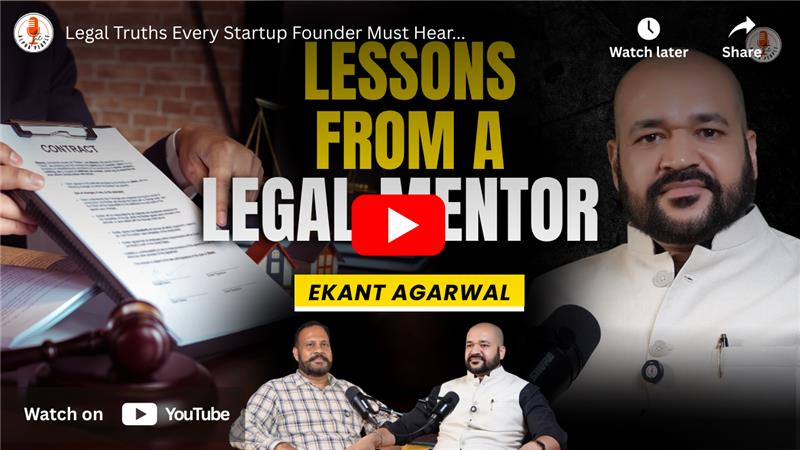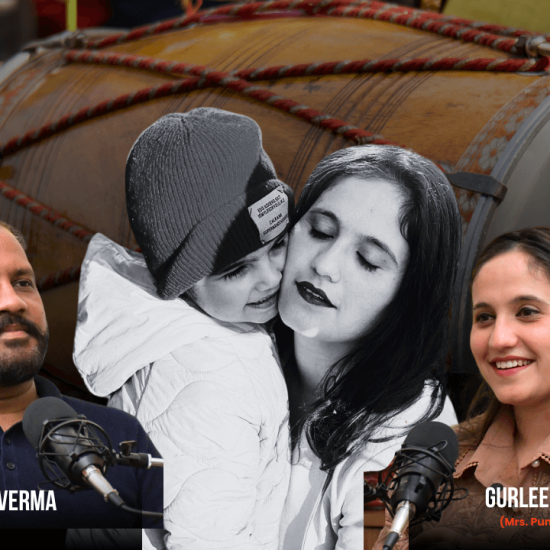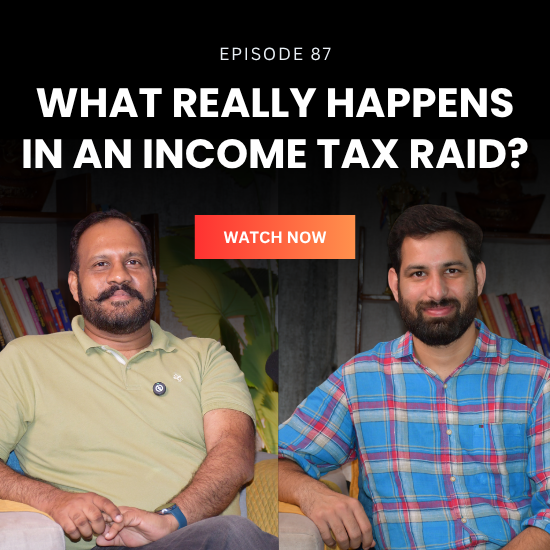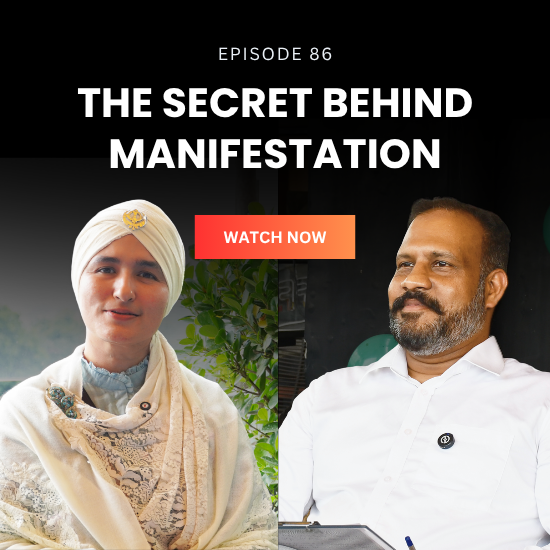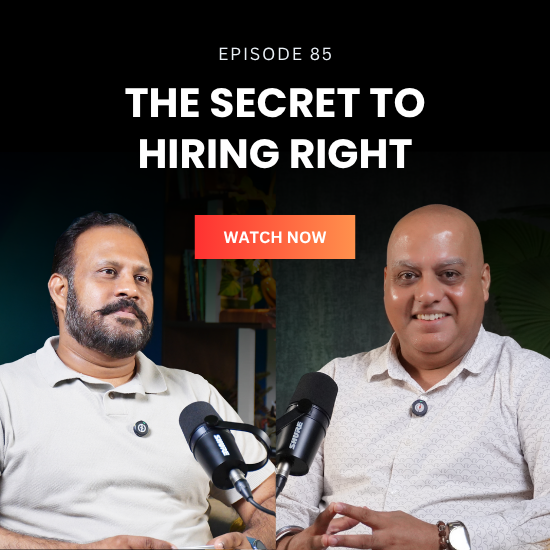The conversation begins with Advocate Ekant Agarwal sharing his humble roots and the academic challenges he faced early in life. From scoring below average in school to being labelled as a “backbencher,” his story is a compelling tale of transformation. His parents, especially his mother, played a significant role in motivating him. What started as a pursuit for parental pride turned into a lifelong commitment to excellence, resulting in him receiving over 73 awards in the fields of law and startup mentorship.
Ekant dives into the reality of the startup ecosystem, particularly the changes he’s observed in Chandigarh and other Tier 2 cities. He highlights how COVID shifted job seekers and founders back to their hometowns, creating new opportunities for regional innovation and employment. He actively mentors and guides startups through the CBMA (Consortium of Business Mentors and Advisors) and Startup Punjab, helping them build not just scalable businesses but also legally sound foundations.
A major focus of this episode is Ekant’s take on corporate law and labour rights. He emphasizes that most startups ignore the basics of compliance—things like employment contracts, notice period enforcement, and POSH policies—until problems arise. Through Ekant Associates and his legal retainership model, he provides startups with ongoing legal support to prevent such issues, rather than reacting after damage has occurred.
Another unique aspect of this podcast is Ekant’s view on mentorship. He explains that true mentorship is about filling the gaps—not just offering advice, but actively engaging in HR, legal, operations, and decision-making support when needed. He sees himself not just as a lawyer or mentor, but as someone who walks the journey with the founder. His role often goes beyond legal advisory and stretches into emotional and spiritual support for young entrepreneurs navigating uncertainty.
The episode ends with reflections on life purpose and legacy. For Ekant, success is not about titles or wealth, but about how many lives he can uplift through knowledge and guidance. His passion for mentoring comes from a place of service—deeply spiritual, emotionally grounded, and legally sharp. This conversation offers an empowering message for founders, young professionals, and anyone seeking both clarity and impact in their work.
🔔 Don’t forget to subscribe & share if this conversation resonated with you!
🔔 Don’t forget to subscribe & share if this conversation resonated with you!
Frequently Asked Questions
Certainly! Here are some potential questions and answers based on the podcast conversation:
No, I was always in the last 10 of my class. People laughed when I said I wanted to be successful. But I knew I had something in me—I just had to find it. That moment when my mom asked me, “How many awards have you won?” made me promise myself that I'd win 1,000 one day. I’ve won 73 so far.
Founders fail not because they lack ideas—but because they try to do everything alone. You can’t build a business if you’re the CEO, HR, legal, and marketing all in one. That’s where mentors come in—to fill the gaps.
From Day 1. But most don’t. They wait for a legal issue to arise, then panic. I tell them: don’t treat legal like a fire extinguisher—make it part of your foundation.
Not just gyaan (advice). Founders need mentors who step in like partners—sometimes as a legal head, sometimes an emotional support, sometimes a friend. True mentorship is about walking with the founder, not just watching from the sidelines.
They think it’s expensive or unnecessary. But losing a case or facing a compliance issue later costs much more. That’s why I started offering retainer-based legal services—so even small startups can stay safe.
After COVID, people realized they didn’t need to move to metros. The cost of living is lower, infrastructure is growing, and now even talent wants to stay local. Chandigarh is becoming the next startup hub.
Draft employment contracts, NDAs, create a POSH policy, and set up a shareholder agreement. Most founders skip these because they trust their team blindly—but one fallout can ruin everything.
Through meditation and grounding practices. I believe you can’t mentor others if you’re scattered inside. Spiritual clarity helps me make better business decisions.
I ask them to pause—not quit. Sometimes all they need is someone to listen without judging. Most founders don’t fail due to business—they break emotionally.
To serve. I want to help as many people as possible build something meaningful—be it through law, mentorship, or guidance. I don’t want to be remembered for my success, but for how many people I lifted along the way.
I don’t see them as separate roles. If you want someone’s success, you wear every hat they need—even if it’s inconvenient. That’s what leadership means to me.
